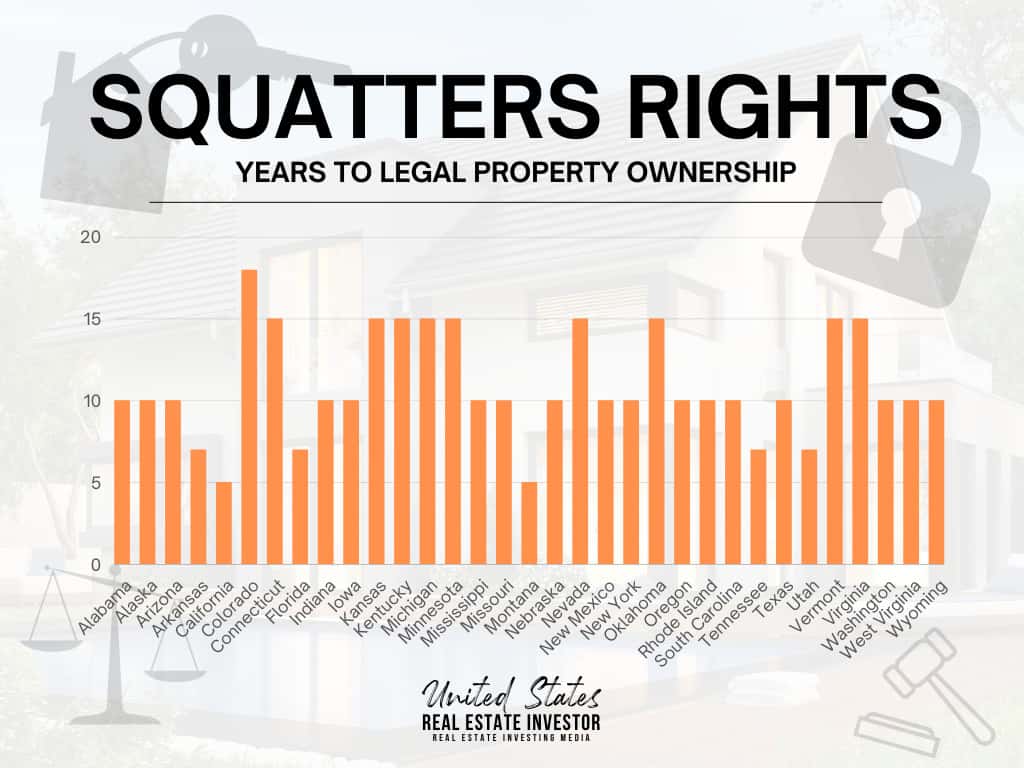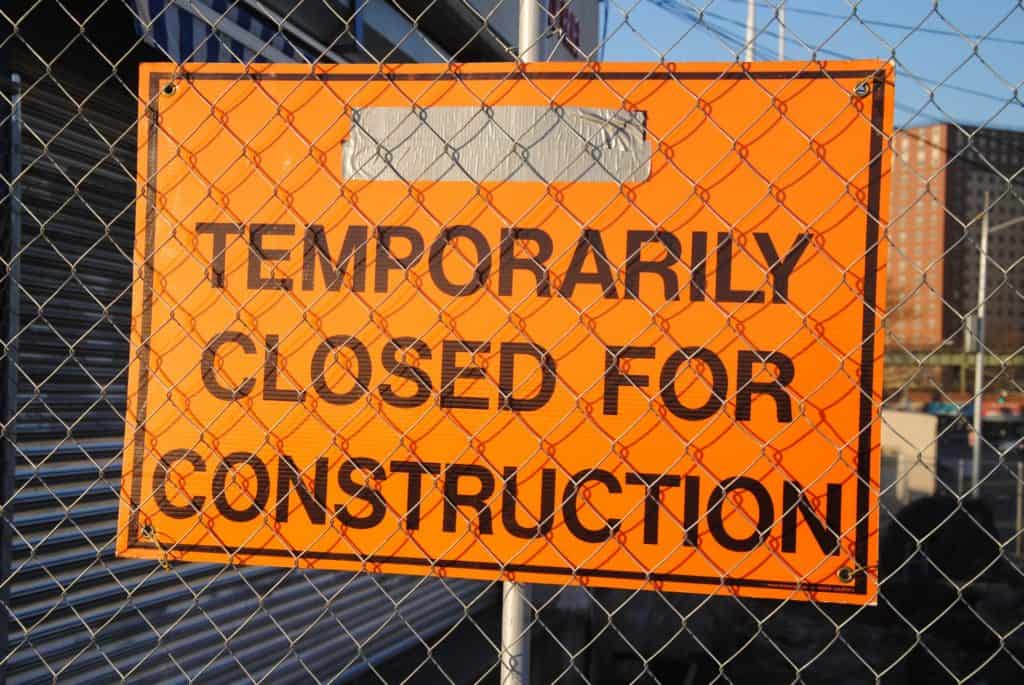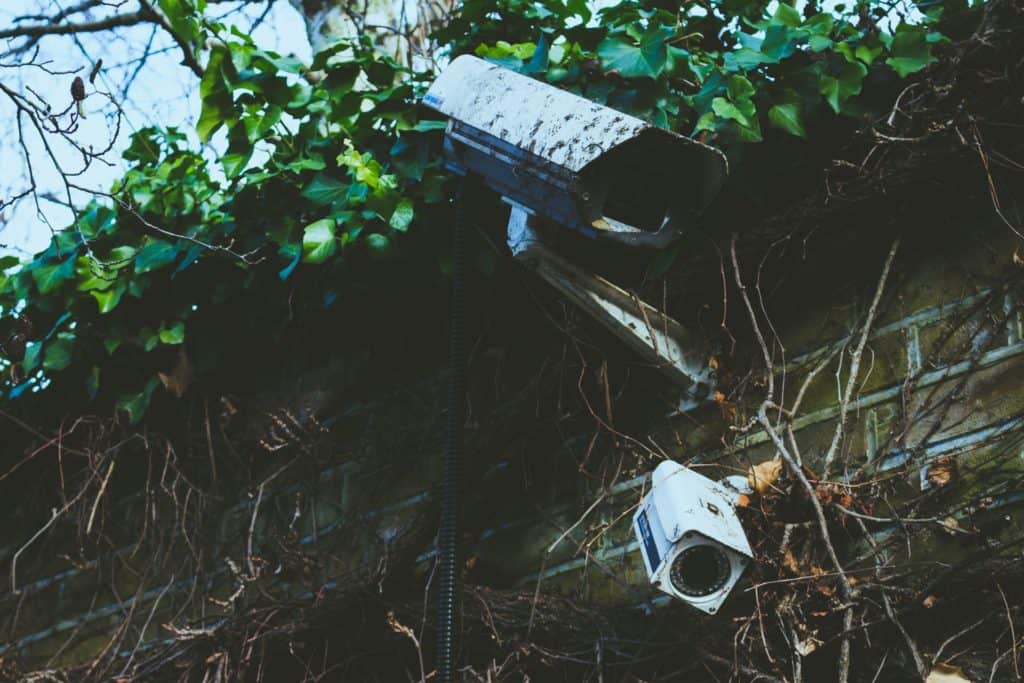Squatters Rights (How To Protect Your Real Estate Investment): To Take What Is Rightfully Yours
In our times of skyrocketing rents and expansive real estate prices, property owners are increasingly facing the issue of people commandeering their properties at no cost or communicating with landlords.
This practice is called Squatting.
As a real estate investor in the United States, it is important to understand the concept of squatters’ rights and how it could affect your investment.
What is a squatter?
Not to be misconstrued with a holdover tenant, someone who has stayed in a property after their lease has expired and they have not been able to reach an agreement with the landlord or owner, a squatter is an individual who takes up residence in a vacant property that they don’t officially own or lease.
Generally, squatters will occupy a property without the permission of the legal owner and do not pay rent or property taxes.
The ownership rights to the property remain with the legal owner, even if a squatter has been living there for some time.
Squatters can be disruptive to real estate investors’ investments as they can cause damage to properties, reduce their value and ultimately lead to additional expenses in eviction costs and property taxes.
As such, it’s important for investors to understand their rights regarding squatters and take steps to protect their investments from these unwanted tenants.
This includes filing applicable paperwork with local courts, regularly monitoring the state of their investment properties, and implementing strict tenant screening processes for prospective renters.
What are squatters’ rights?
Squatters Rights, also known as Adverse Possession is defined per source: Wikipedia: Adverse possession, sometimes colloquially described as “squatter’s rights“,[a] is a legal principle in the Anglo-American common law under which a person who does not have legal title to a piece of property—usually land (real property)—may acquire legal ownership based on continuous possession or occupation of the property without the permission (license) of its legal owner.[1] The possession by a person is not adverse if they are in possession as a tenant or licensee of the legal owner.
Cornell Law School definition: Adverse possession is a doctrine under which a person in possession of land owned by someone else may acquire valid title to it, so long as certain requirements are met, and the adverse possessor is in possession for a sufficient period of time, as defined by a statute of limitations.
Adverse possession is a doctrine under which a person in possession of land owned by someone else may acquire valid title to it, so long as certain requirements are met, and the adverse possessor is in possession for a sufficient period of time, as defined by a statute of limitations.
–Cornell Law School
Generally speaking, the term for a person who occupies residential premises of a property that is not their own and has no right to do so is a squatter.
Even though the typical idea of squatting is the act of an unassociated person making their home in or on an unauthorized property, squatting is a standard method used by tenants during the eviction process and can be viewed as a form of protest.
The practice of squatting can also be conducted by homeless or adventure-seeking passersby as a way to acquire a place to live temporarily, or in some cases, long-term.
Although it is not impossible to lawfully gain ownership of properties, in most cases, the squatter does not officially claim legal control.
Frequently, depending on how derelict or uninterested, the owner is not even aware that someone is living on their property.
With an ever-increasing demand for housing, property investors are increasingly worried about the potential of their investments being taken away by squatters.
Squatting, which is when someone occupies an unused or unoccupied building without permission from the owner, can be a major issue for property owners.
While it’s illegal in most jurisdictions, there are still ways that squatters can take and hold real estate without any legal right to do so.
Squatting is a growing concern for real estate owners and investors.
When someone unlawfully occupies a property, they are considered a criminal trespasser, and they can remain on the property until legally evicted.
This article will provide an overview of how to protect your investment in real estate by recognizing squatters’ rights and understanding the eviction process.
It will discuss the legal implications of ignoring the presence of squatters and outline the necessary steps to evict them from the premises.
We will also talk about what action you can take if a squatter refuses to leave after receiving an eviction notice.
Can a squatter legally squat on your property?
The answer is, yes they can. Depending on the property’s jurisdiction, the law allows a person to squat on a property without any kind of legal basis.
Getting your property legally back from a squatter is not always possible.
In some cases, squatters can be evicted by an order from a court of law. In other instances, squatters are simply asked to leave the property by the original owner.
To safeguard yourself as a property owner, thoroughly communicate with your city’s state and local government to learn the squatting laws that can help you stay protected from these types of unwanted activities.
When it comes to real estate investment, one of the last things you want to worry about is having your property taken away by somebody who doesn’t have a legal claim.
Squatters can be a major issue for actual owners and understanding the laws around squatters’ rights is essential in protecting your investment.
Adverse possession laws are designed to protect both the squatters and the actual owner from becoming embroiled in lengthy court battles.
Additionally, color of title allows squatters to gain official ownership if certain conditions are met.
What can squatters do?
The legality of squatting depends on the laws of the local jurisdiction and whether the squatter has made improvements to the property.
In some cases, a squatter may be able to claim legal rights over a property after an extended period of time if they pay taxes on the land, make improvements to it, and don’t bother other people in the area.
Therefore, it’s important for property owners to take action right away when they suspect someone may be attempting to occupy their vacant space without permission.
As a way to skirt paying rent or any other debt obligations, squatters can do a lot of things, good and bad, if allowed. In some cases, they can cause damage to your property, but in most cases, the damage is not severe enough to warrant legal action.
When it comes to the neighbors of your property, squatters can also be a massive nuisance, but this is not always the case.
Some squatters have been known to actually increase the beauty of properties by cleaning, repairing damages, and creating and/or planting elaborate landscaping, therefore increasing your property’s value; This is a clever attempt to combat removal from the premises.
Although certain squatters may feel that they are increasing the area value with their presence, many of the surrounding residents may feel a threat to their personal safety and security.
What are the benefits of squatting?
To many individuals, squatting can be an incredibly liberating and fulfilling experience. When squatting, some have stated that there is a sense of independence, empowerment, and ownership that comes with living in one’s own property.
Depending on the neighborhood and the value that a squatter can bring, squatting can be a great way to meet people, gain skills, and build community.
With those seemingly positive things said, squatting can be an enormous monetary and wellness drain on the individual, especially if they are not able to own the property.
Not having the proper financial documentation, necessary health and safety precautions, and building code regulations in place, squatters can place their lives at a conceivably irreversible risk.
What are the risks of squatting?
Although squatting can be a criminal activity, some squatters may feel that squatting is a good way to make money through sub-squatting rents and other illegal practices such as the sale and manufacturing of illicit drugs.
Squatting be very dangerous as perpetrators could be arrested and prosecuted if caught violating area squatting, landlord, and narcotics laws.
Squatting can also have serious consequences for the health and safety of the squatter. If there is no compliance with building and safety codes, squatting situations could become very hazardous.
Squatting can also cause damage to the squatter’s personal property. Squatters could lose their chosen home because of a fire, natural disaster, or other accidents. If a squatting situation is unsafe, it may also be highly illegal.
As a property owner, an unsafe squatting situation can put squatters and/or your neighbors in serious danger. Most of all, squatting can cause great harm to the reputation and livelihood of the property owner.
How to squat legally?
There are 5 ways to possibly squat legally:- Show how much you appreciate the property by voluntarily adding value to the property (cleaning, repairs, landscaping, etc.).
- Look into the squatter’s rights laws in the city of the property to see what legal rights squatters have.
- Become a member of the neighborhood association and ask that they include you on their list of approved squatters.
- Become a member of the property owner’s organization, and ask them to accept your application to become a squatter.
- If you are already in possession of the property in which you wish to squat, then you must, at least, begin by going through the previously listed steps above.
There are several other ways to squat, but they all have the potential of causing legal problems. Much to the chagrin of many absent landlords, some cities have many legal ways that properties can be taken over by undocumented tenants.
5 Ways to secure your property from squatters?
Are you worried about squatters taking over your property? There are ways to secure your property and protect yourself from squatters. Here are five tips to get you started:
- Keep your property well-maintained and tidy. If it looks like someone is living there, squatters may be more likely to move on to an easier target.
- Install security cameras and/or signage that warns trespassers they will be prosecuted. Today, there are many remote security camera options you can use to protect your property from anywhere in the world.
- Make sure to keep all doors and windows locked at all times. Be sure that you have proper locking systems, door locks, window locks, etc. as to make it increasingly difficult for intruders to access your real estate.
- Have a clear plan for what to do if someone tries to squat on your property. Coordinate with neighbors if they see any suspicious activity. Be ready to contact the police immediately!
- Communicate with your local government to know the squatting laws, statistics, and your rights as a property owner.
Conclusion
To real estate owners and landlords, the act of squatting in a property can be an extensive annoyance that needs to be kept in mind.
Along with steadily rising property values, wage stagnation, a nationwide lack of financial education, authoritarian laws, weak local government structures, and the culture of poverty in certain areas, squatting is becoming a more attractive alternative for people who want to control inaccessible properties.
No related posts.






































